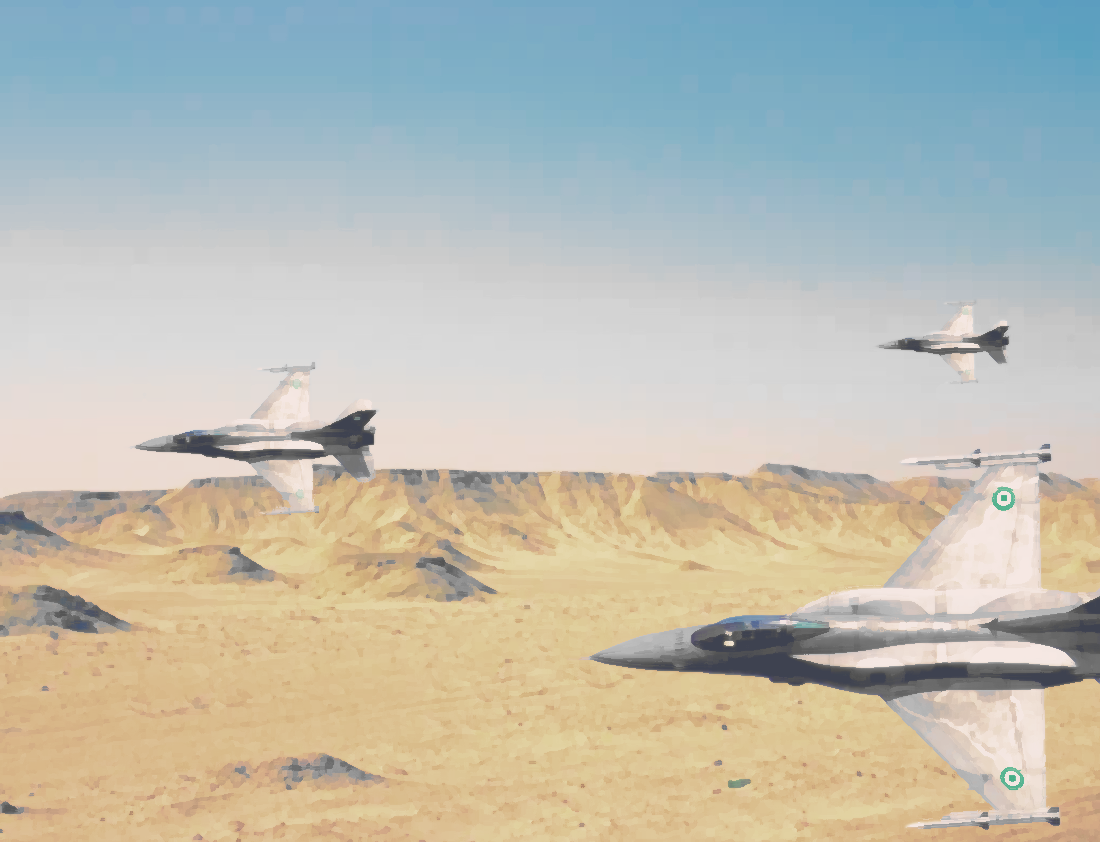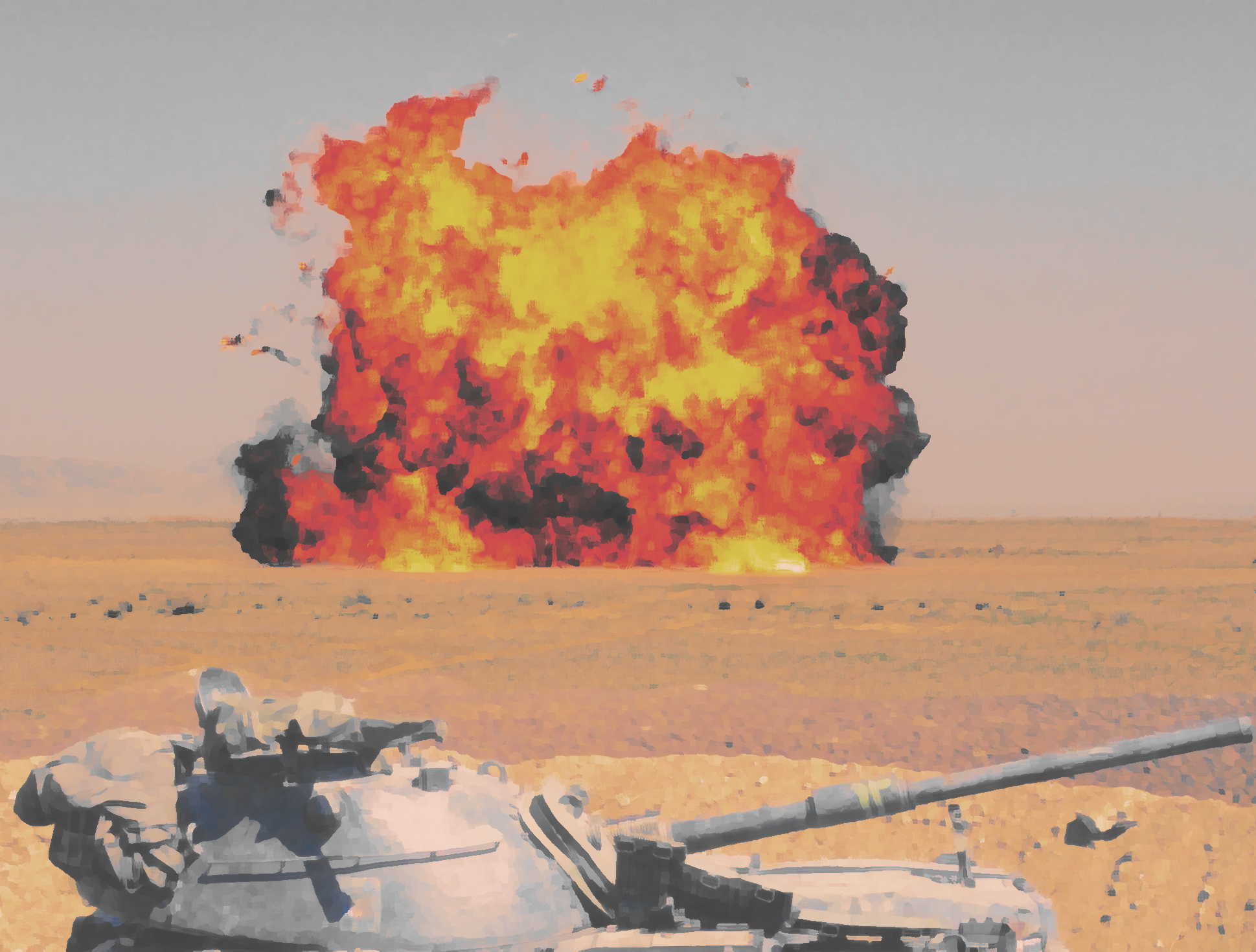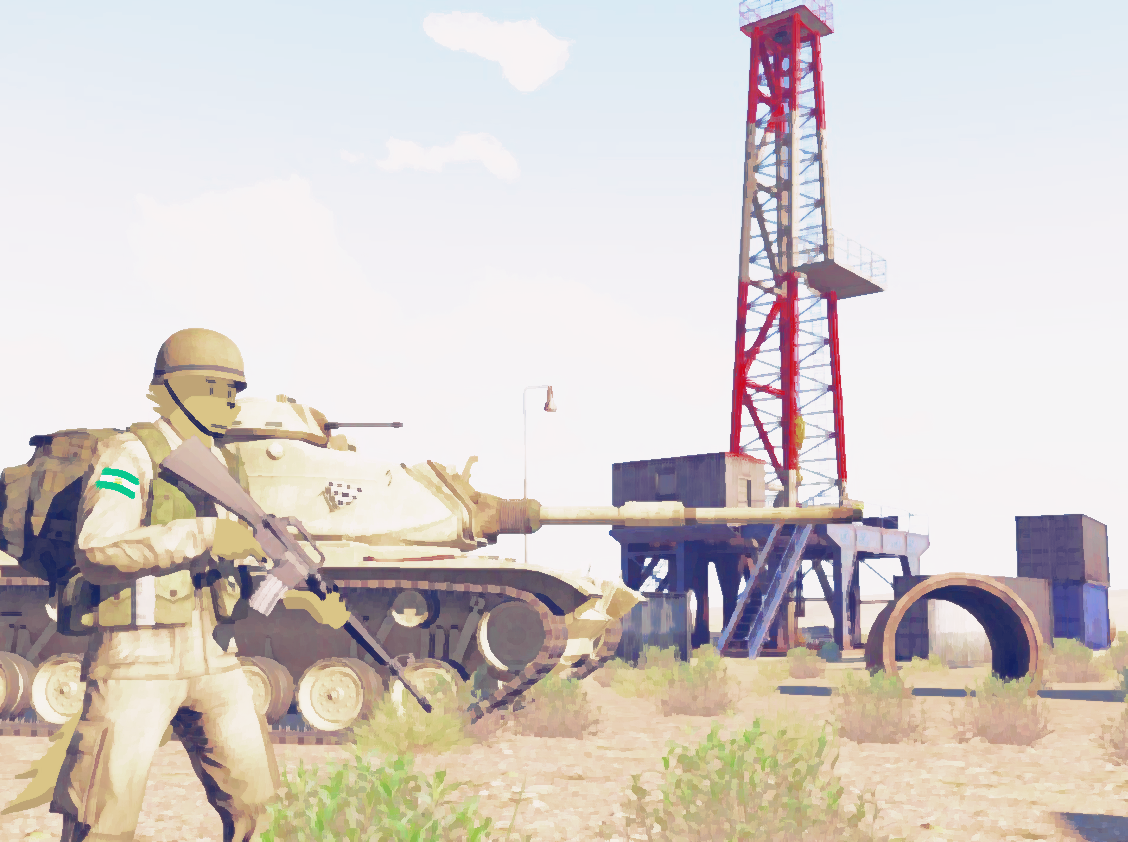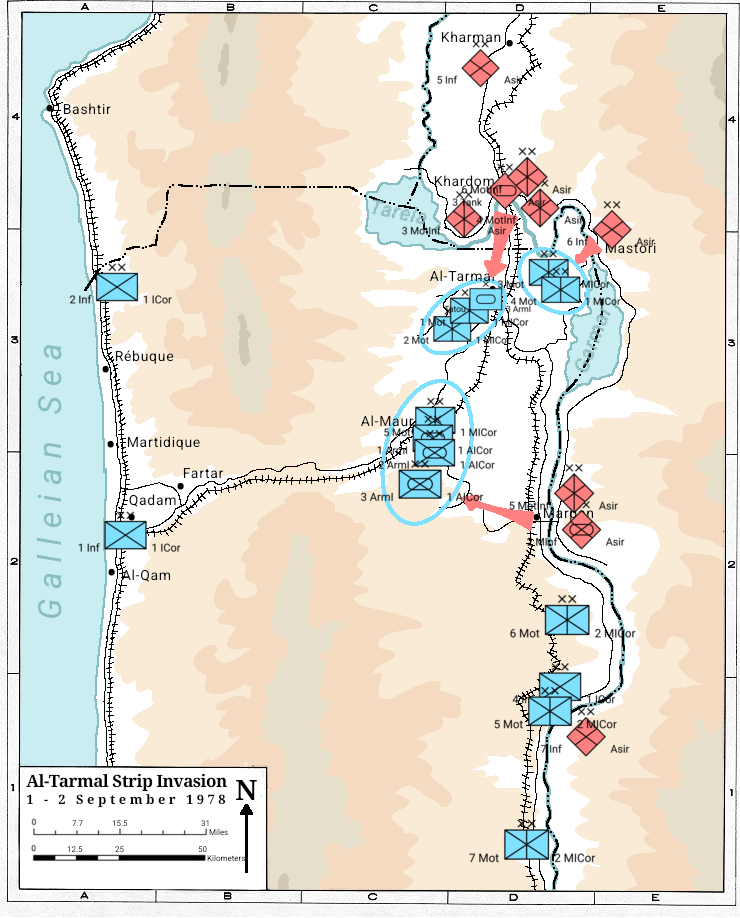First Oil War



Mastari Jet Fighters (September 1978), Oil Field Explosion (September 1978) and Mastari Soldier Guarding an oil pump (November 1978)
| Date: | 2 September 1978 - 7 November 1978 |
| Location: | Al-Tarmal strip and Western Kingdom of Asir |
| Result: | Mastari victory |
|
Material support: |
Material support: |
|
15,200 soldiers 300 tanks 60 fighter jets 2 Warships |
37,000 soldiers 500 tanks 50 fighter jets 3 warships |
|
1,100 soldiers 11 tanks 1 fighter jet |
7,300 soldiers 30 tanks 10 fighter jets |
The First Oil War also called the Mastari-Fatamwitte War was a armed conflict between the Republic of Mastar and the Fatamwitte Confederation. It started on the 2nd of September 1978 and enden on 7th of November same year.
Background
The armed conflict was preceeded by a long period of worsening relations between Mastar and the Fatamwittes caused by rivarly in the region's oil production and continuous threats made by the Fatamittes towards Mastar because of the latter's occupation of the oil-rich Al-Tarmal Strip which was claimed by the Fatamwittes but controlled and internationally recognized as belonging to Mastar. Oil mining in Al-Tarmal amounted to 30% of all Mastari oil production and the Fatamwitte Confederation saw the invasion of it as an opportunity to occupy Mastari oil fields and revitalize stagnating Fatamwitte economy.
Fatamwitte decisions were also largely influenced by the Potentate of Eikai of which they practically became a puppet due to overreliance on Eikaian economic support as the Fatamwitte economy was in a poor state due to the monarchy's poor management.
One day before the invasion, on 31st of August, Fatamwittes staged a fake incident involving soldiers in Mastari uniforms opening fire on a stationed Fatamwitte Armed Forces' batallion 10 kilometers from the border. Mastari administration quickly called out the Fatamwittes for their actions and called the incident a hoax, however that did not amount to anything and the invasion still commenced.
Course
September
 Initial invasion map
Initial invasion map
Late at night between the 1st and 2nd of September 1978 Fatamwitte Confederation's army crossed the border. Initially the Fatamwitte plan was to capture Al-Maur and cut off land access to East Mastar from Mastary Army, which would cause major distuptions in Mastari fuel exports and would quickly force them to make major concessions towards the Fatamwitte Confederation.
Despite the invader's strength in numbers the Fatamwittes were quickly overwhelmed by Mastar's superior firepower and more technologically advanced equipment. Fatamwitte Armed Forces failed to capture Al-Maur, but managed to occupy Marpan and heavy fighting took place in the city of Al-Tarmal.
Mastar officially declared war on the Fatamwittes one day after the invasion and the news of the invasion quickly spread among the international community and the conflict turned into a proxy war. On 3rd of September the UWO held a vote in which they decided to formally condemn the Fatamwitte Confederation while the United Federation with Mercland and Ren put sanctions on the invaders along with sending equipment support and military advisors to Mastar. Eikai also sent their own package of support to Fatamwittes afterwards.
After 10 days of heavy fighting Mastar launched a counter-offensive which was paired with an extensive bombing campaign conducted in the West of the Kingdom of Asir which targeted major supply lines in the area. On 13th of September the front returned to the position from before the war until Mastari Army resumed their advance three days later. Fighting under the cities of Mastori and Khardom continued for the rest of the month.
October
Advancment of both armies stalled at the beginning of October until another campaign of aerial bombing on Fatamwitte positions started on 8th of October which ended with Mastar capuring Khardom and Mastori before beginning their advancement further North towards Kharman until they were forced to split and reinforce their positions in Al-Maur and Marpan because of a Fatamwitte breakthrough in Marpan. Mastar was then forced to retreat further after Fatamwitte Confederation launched an attack with 5 ballistic missiles, supplied by Eikai, targetted at Al-Maur, Al-Tarmal, Marpan, and going even as far as targeting Fartar and Qadam.
November
The conflict seriosuly strained the Fatamwitte economy and the invaders eventually agreed to sign a peace deal on 7th of November 1978 in which Fatamwitte Confederation was forced to abandon their positions on Mastari land and pay war reparations.
Aftermath
Mastari and Fatamwitte oil accounted for 70% of all oil imported to the United Federation. Sudden decrease in said exports caused severe fuel shortages in UFA, but also in other countries which relied on oil extracted in that region. On top of that fuel prices in around the world (excluding SUA and other Socialist states because of their own oil extraction and little trade outside of ideological partners) skyrocketed and many were forced to look for fuel from other sources.
The victory brought much needed political support to the Mastari National Progressive Party. However celebration did not last for long and many saw that the war reparations did little to aid the rebuilding after the war. War alienated a substantial amount of customers purchasing fuel from Mastar and the oil industry never recovered as the country was forced to look towards other branches of economy for further rebuilding and development.
In Fatamwitte Confederation the war was seen as a humiliating defeat. Many referred to the conflict as "Fassan II's meat grinder" because of high casualties suffered under the reign of said king compared to their enemy. On top of that reparations and substantial destruction of the oil fields in the country which accounted to 20% of all extraction caused the Fatamwitte economy to stagnate. The country never recovered and its economy continues deteriorating to this day.